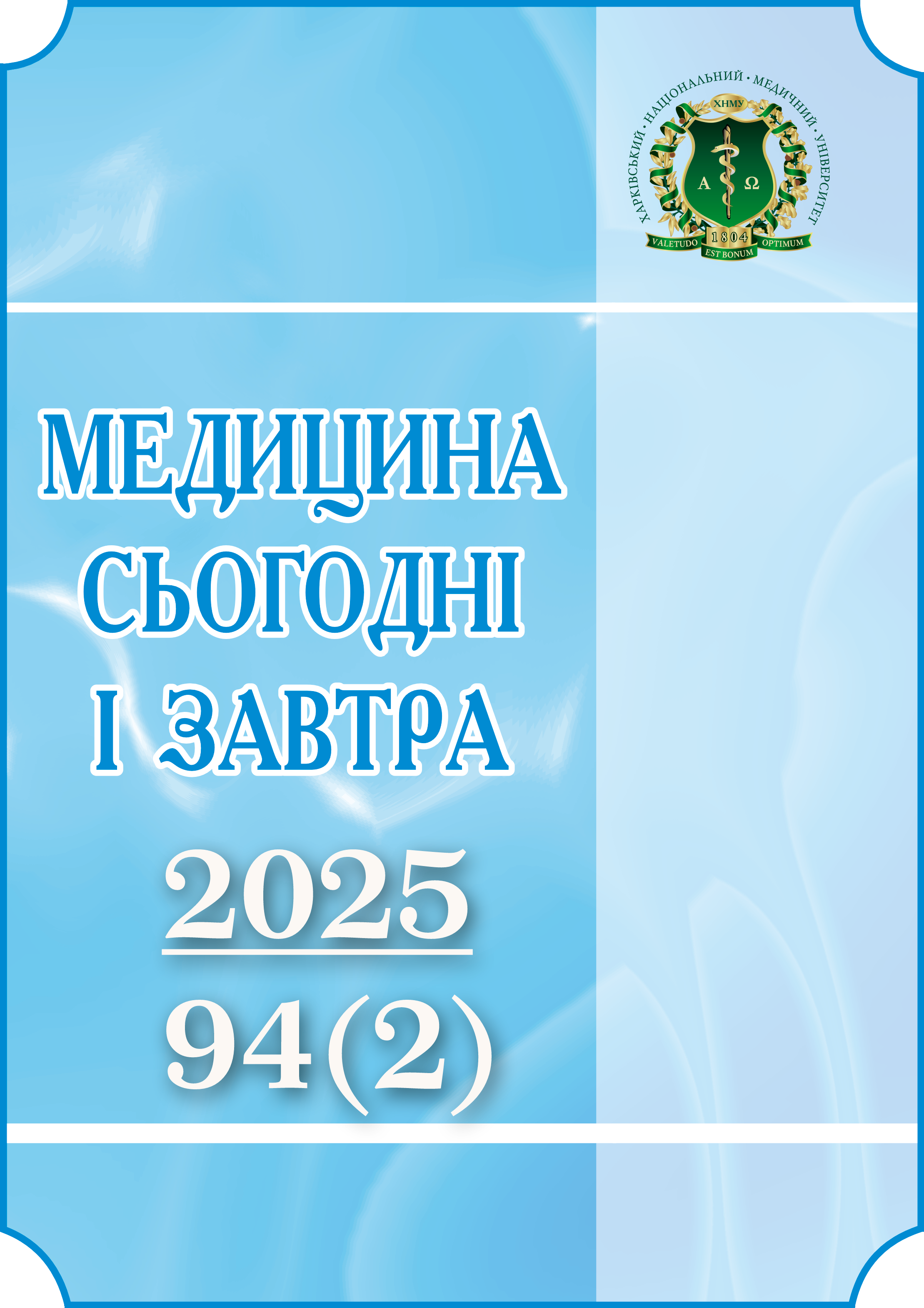Abstract
In press
Burnout syndrome is one of the most pressing challenges in healthcare, directly affecting the efficiency of medical personnel and the quality of care. In the search for effective prevention mechanisms, the level of awareness among healthcare professionals regarding the regulatory framework governing their psycho-emotional well-being is of particular importance. The aim of this study was to assess the level of regulatory awareness among medical workers, explore the sources of knowledge, and analyze barriers to the practical use of burnout-related normative documents. A total of 221 responses were collected through an online survey. A Regulatory Awareness Index (RAI) was calculated, and statistical analysis was performed to determine correlations between the RAI and respondents’ socio-professional characteristics. RAI is expressed in points or as a percentage of the maximum possible level of knowledge. The results revealed a high degree of heterogeneity in knowledge levels, low practical application of regulatory documents, and insufficient participation in official educational activities. A statistically significant relationship was found between the RAI and job position, as well as work experience. Doctors and specialists with more than 20 years of experience demonstrated a higher level of awareness, which is confirmed by statistically significant differences in position (F=12.54; p<0.001) and seniority (F=7.89; p=0.002), which corresponds to the purpose of the study to identify the influence of occupational factors. A critical deficit of regulatory awareness was identified (72.6% in total). The influence of professional status and length of service on RAI has been confirmed (p<0.01). A systemic problem of inefficient use of standards (<20% of application) has been established. The dominance of informal sources of information was revealed (78.3% from the Internet). The study highlights the need for a systemic review and wider dissemination of regulatory tools as part of professional burnout prevention strategies.
Keywords: burnout syndrome, sociological research, awareness.
References
World Health Organization. Burn-out an "occupational phenomenon": International Classification of Diseases. WHO; 28 May 2019. [Internet]. Available at: https://surl.li/awhwyq [accessed 30 Jun 2025].
Maslach C, Leiter MP. Understanding the burnout experience: recent research and its implications for psychiatry. World Psychiatry. 2016;15(2):103-11. DOI: 10.1002/wps.20311. PMID: 27265691.
Schaufeli WB, Taris TW. A Critical Review of the Job Demands-Resources Model: Implications for Improving Work and Health. P. 43-68 in: Bridging Occupational, Organizational and Public Health. Dordrecht: Springer; 2014. DOI: 10.1007/978-94-007-5640-3_4.
Protecting health and care workers’ mental health and well-being: Technical Consultation Meeting. WHO; 24 Apr 2024 [Internet]. Available at: https://www.who.int/news/item/25-04-2024-202404_protecthw_mentalhealth. [accessed 20 Jun 2025].
Order of the Ministry of Health of Ukraine No.722 of 13 Apr 2016 "On Approval of the Action Plan for the Protection of Mental Health of the Population of Ukraine for the Period up to 2030", in force on 30 Jun 2025. Official Herald of Ukraine. 2016;(32):art.670. Verkhovna Rada (Parliament) of Ukraine. Legislation of Ukraine. Available at: https://zakon.rada.gov.ua/laws/show/z0670-16 [in Ukrainian].
Order of the Ministry of Health of Ukraine No.413 of 23 Mar 2021 "On the Organization of Psychological Assistance Provision to Medical Workers in the Context of the COVID-19 Pandemic". Official Herald of Ukraine. 2021;(28):art.456. Verkhovna Rada (Parliament) of Ukraine. Legislation of Ukraine. Available at: https://zakon.rada.gov.ua/laws/show/z0456-21 [in Ukrainian].
Litovchenko OL, Kapustnyk VA, Zavgorodnii IV, Merkulova TV, Lysak MS, Perova IG, Beckelmann I. Emotional burnout and professional stress among social field workers during crisis events: pandemic and military conflict. Ukr J Occup Health. 2023;19(3):41-50. DOI: 10.33573/ujoh2023.03.172. [In Ukrainian].
Heera HS, Najar SSH, Shevchenko АS, Lytvynenko O Yu. Valeological relationship of physical workability with health indicators. Inter Collegas. 2023;10(1):33-6. DOI: 10.35339/ic.10.1.hns.
Assonov D. Emotional burnout of healthcare professionals: models, risk factors and protective factors. Psychosomatic Medicine and General Practice. 2021;6(2):e0602295. DOI: 10.26766/pmgp.v6i2.295. [In Ukrainian].

This work is licensed under a Creative Commons Attribution-NonCommercial-ShareAlike 4.0 International License.

